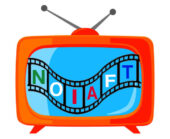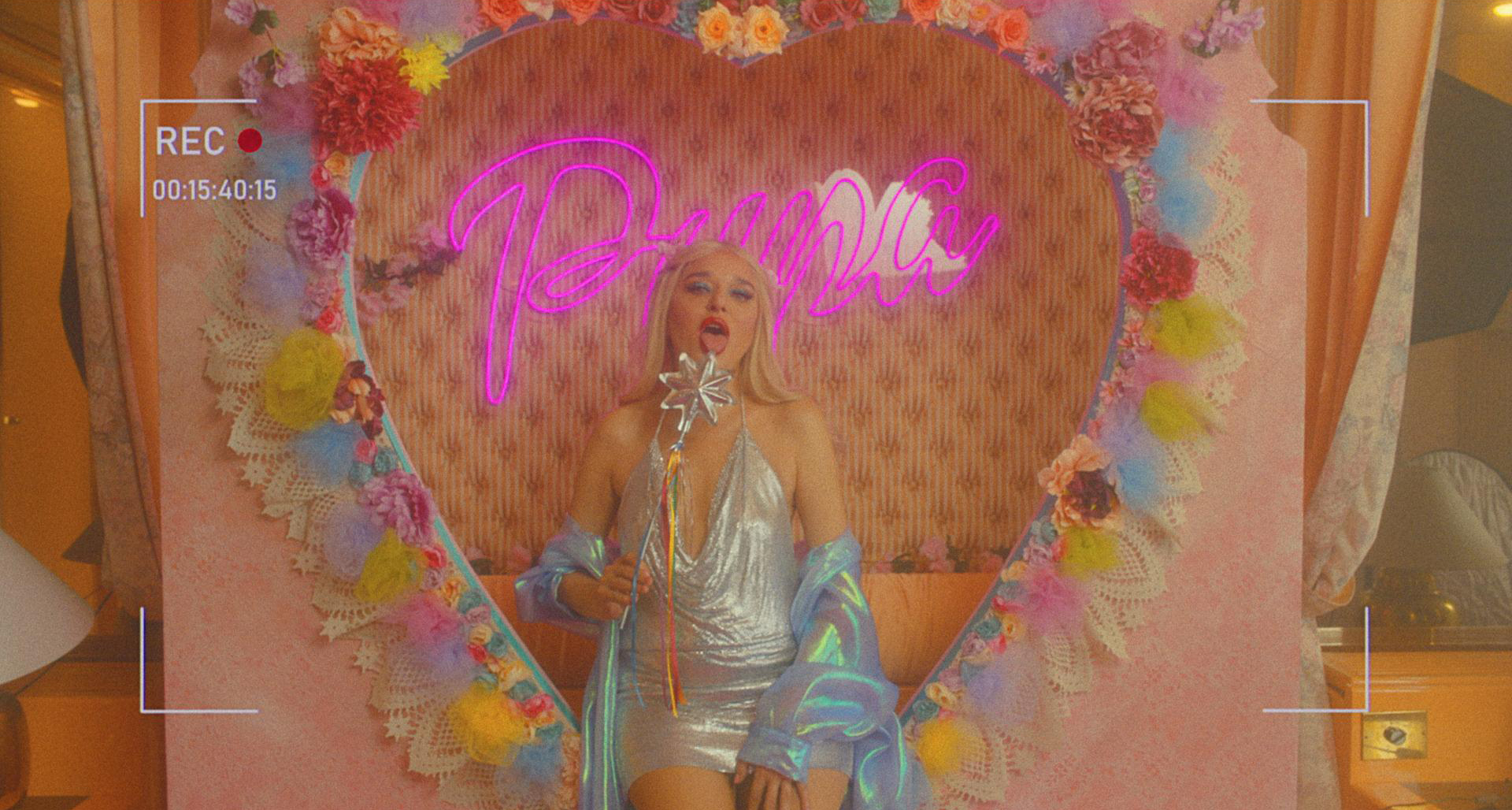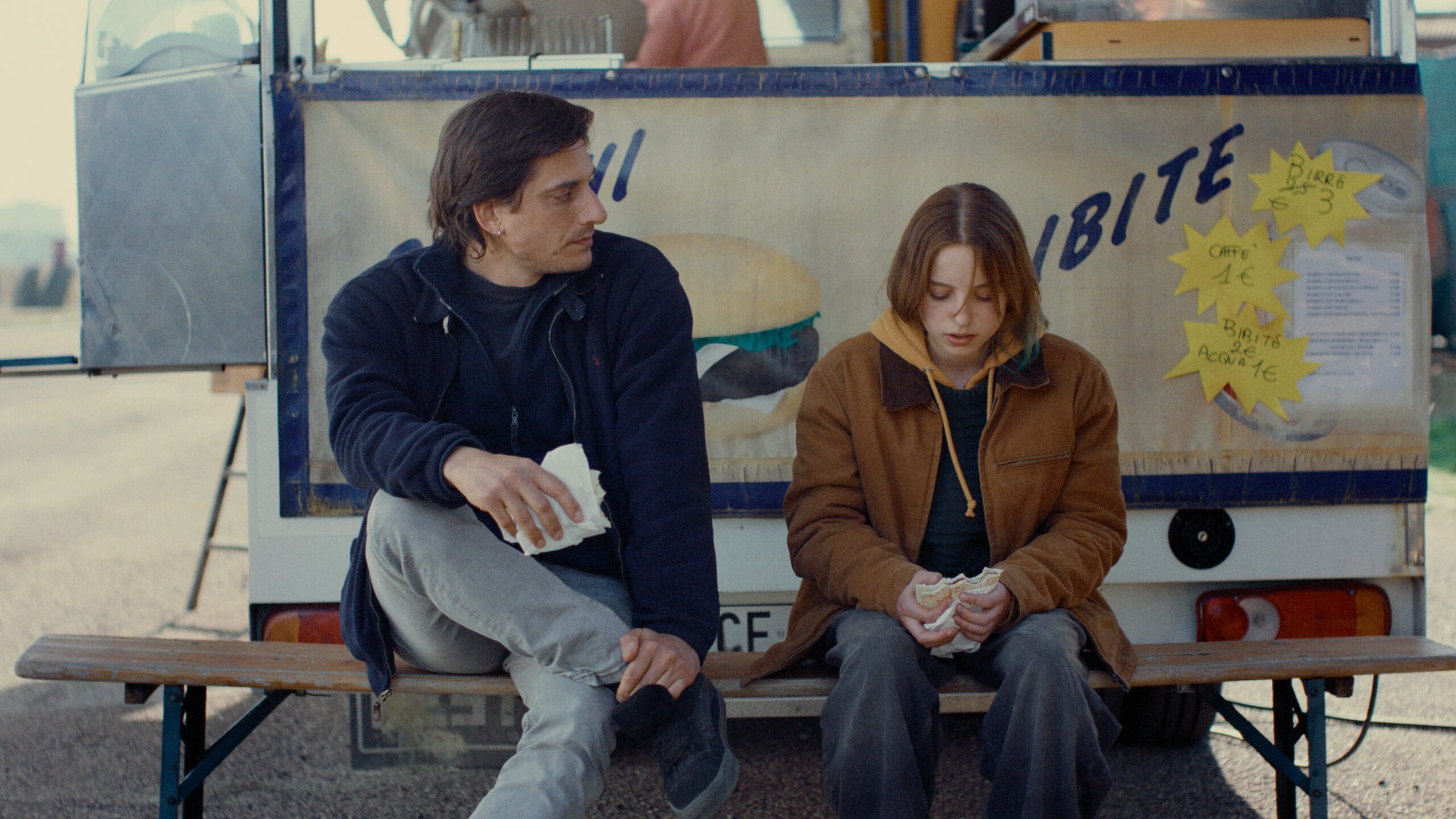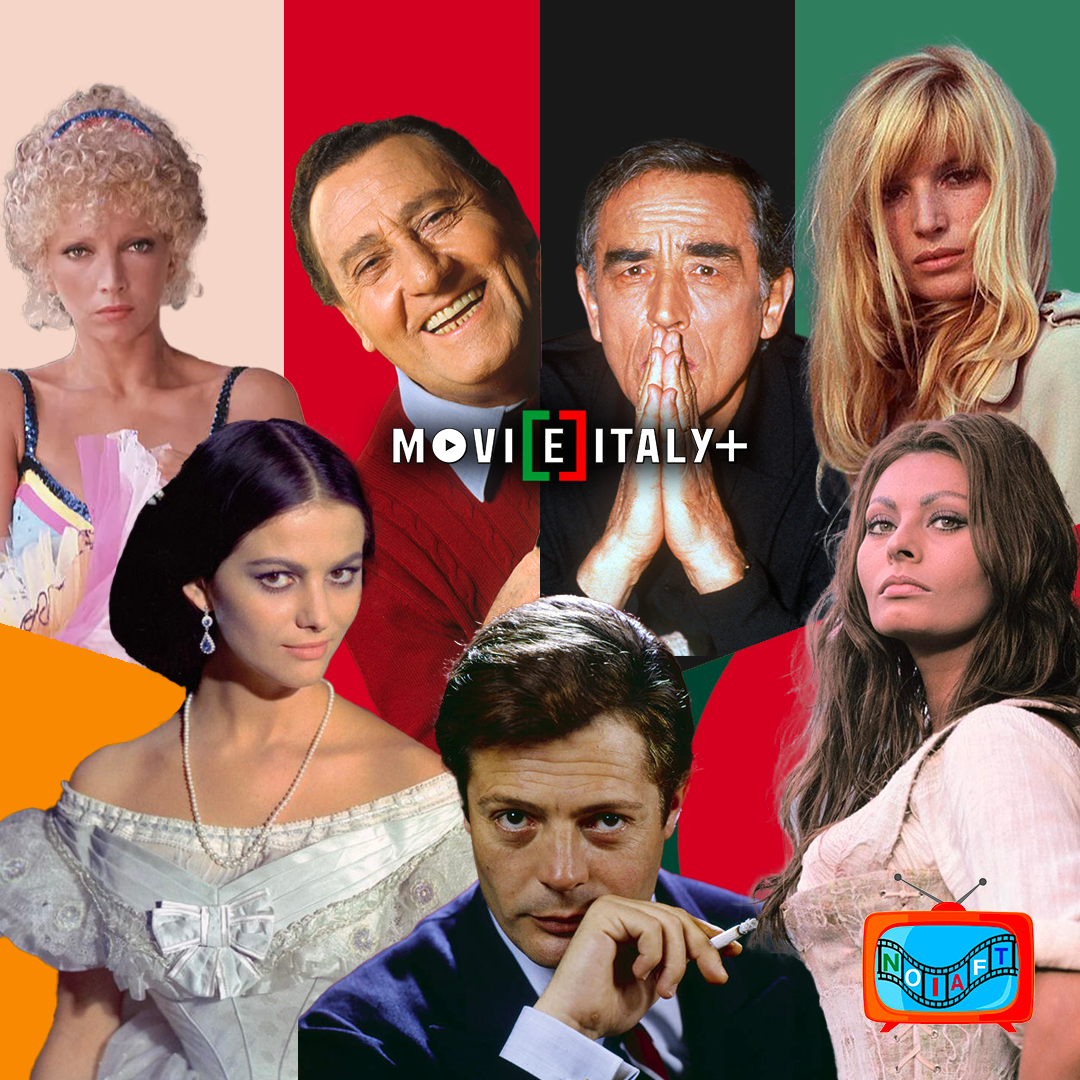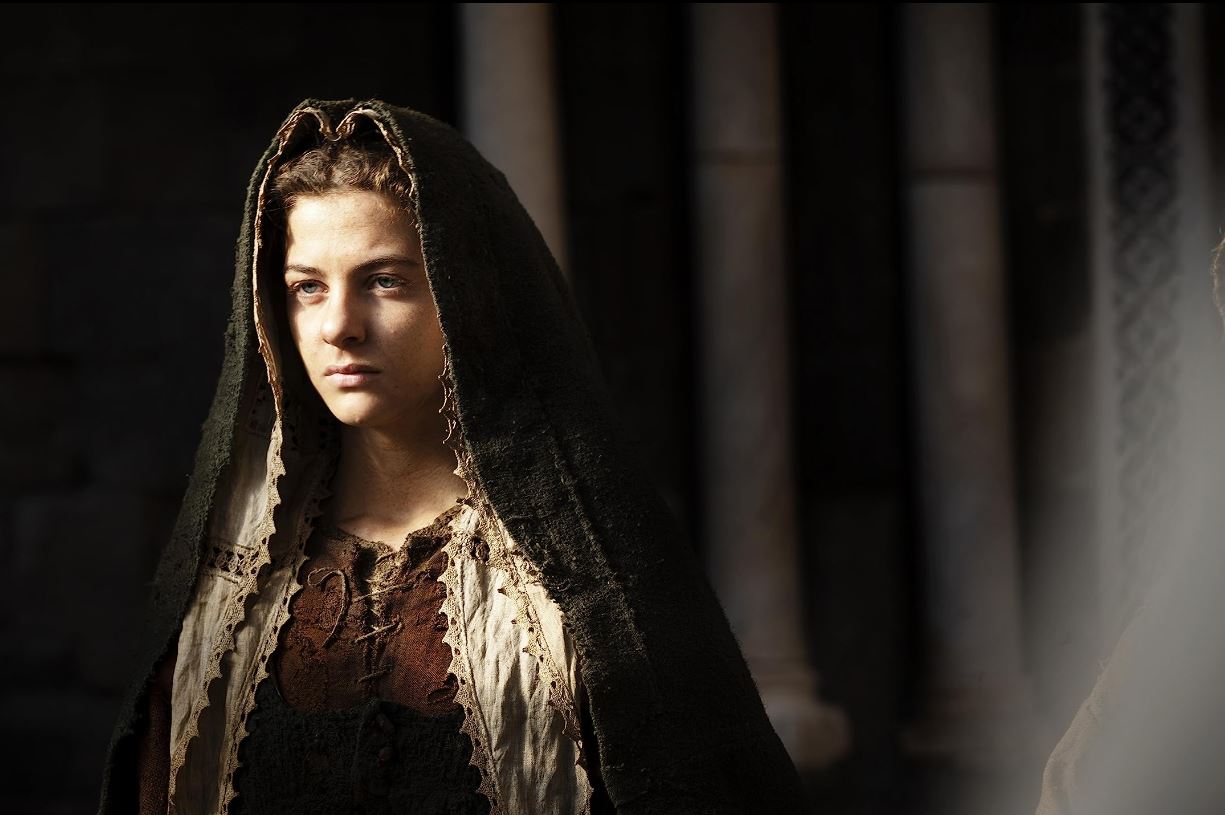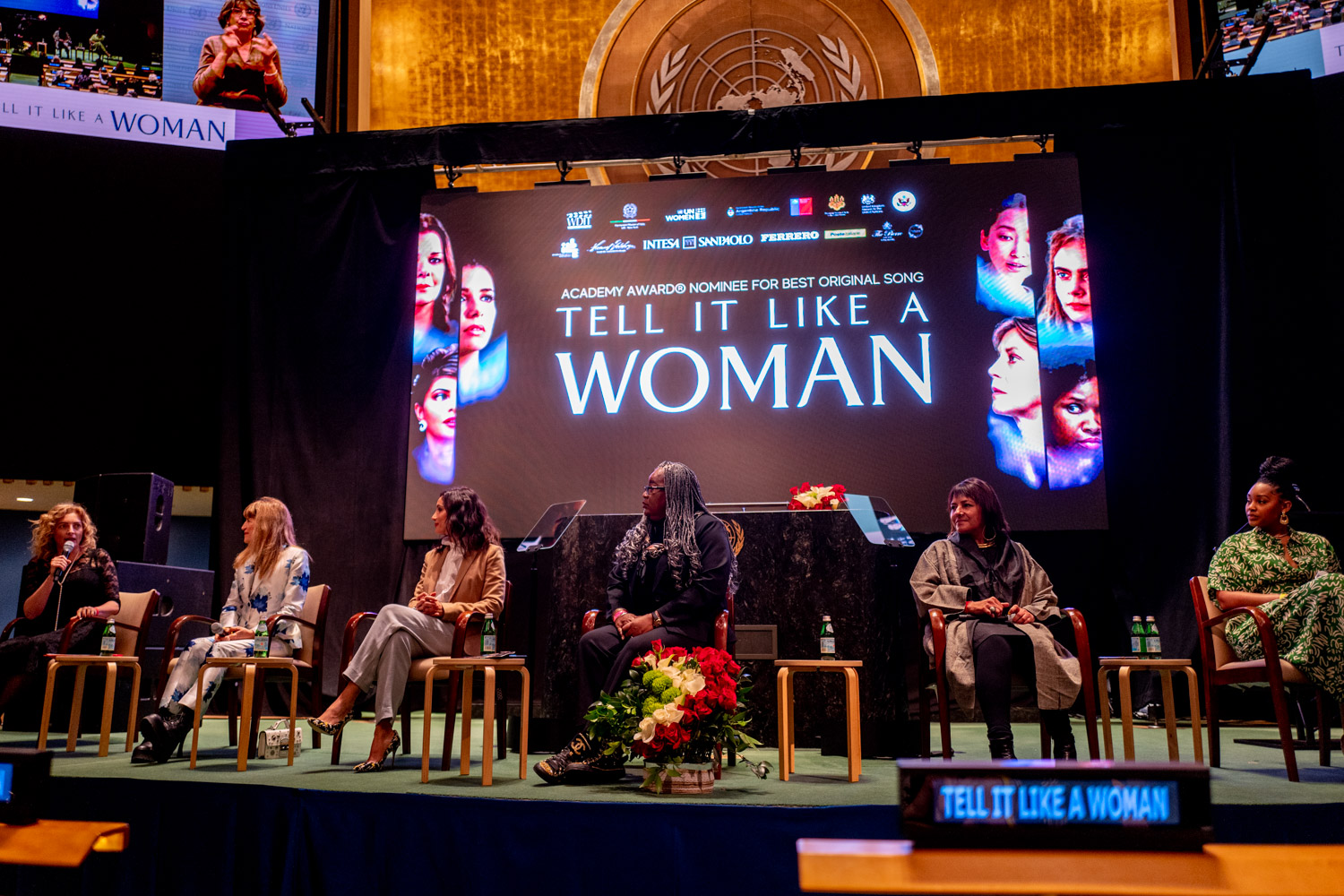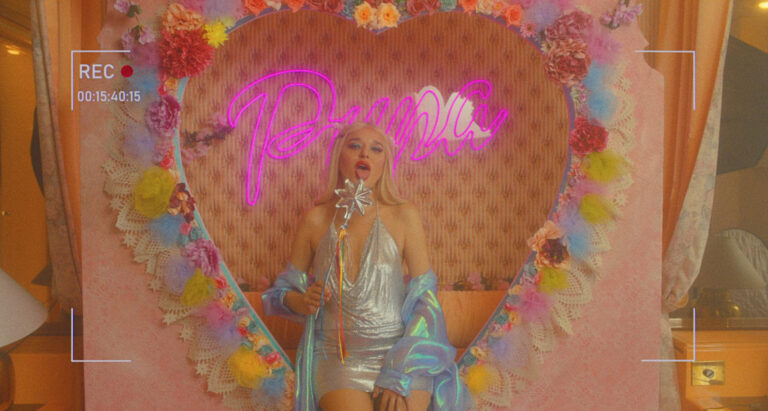
On May 31st, Italian-French director/producer Ginevra Elkann’s “I Told You So” saw its U.S. premiere at the 23rd edition of Open Roads: New Italian Cinema. Taking place at Lincoln Center in New York, audiences were in for a treat as they immersed themselves through a sweltering Roman heatwave, exposing its characters to the heights of their struggles and addictions.
The film boasts an ensemble cast that authentically takes you to the edge, but not without a few genuine chuckles along the way…sometimes, because of their extremes and, other times, because they remind us so much of ourselves.
It’s a highly effective dramedy, because we relate to these “sinners” instead of simply pitying them.
Elkann spoke with NOIAFT’s founder/president Taylor Taglianetti about the creative process in conjuring up her delightful and poignant second feature.
I have many questions for you because, I mean this very sincerely, this was my favorite film I’ve seen in the last year.
Really?
It was so refreshing to me. I haven’t seen a movie like this in a really, really long time. So thank you for making it. I want to jump right in and talk about the cinematography and mood of your film. I’m not sure if you heard of all of the wildfires from Canada that made their way here to New York last year…
Yeah, of course! Uncanny…
When I was watching your movie…it reminded me of what that felt like, in all the best ways, even though it was definitely a very scary day here. I Told You So captured a suffocating and almost apocalyptic feeling for me very authentically. In any case, I read that you used references from cities to create that atmosphere, but did you have visual references from films themselves that you were also going after?
So the first thing was…how do I create heat? How do I have an audience feel the heat? And so I looked at all of these images, especially from Asia, and that gave me the idea of heat, but humid heat. Heat with haze and fog, and how do you represent that? And paintings. And I’ve always loved fog as a visual. It’s something that I feel there’s so much poetry there…in what you see and what you don’t, and it’s magic in some ways. And certainly one of my favorite films is Amarcord by Fellini. And there is a big fog scene where the characters get lost in the fog. So definitely that must have had a very big impact on me.
This is not a thematic reference necessarily, but I was also thinking of Do The Right Thing. How the heat brings out new tensions in the characters…
Mm-hmm, yes, of course.
So did you have all of these characters and storylines in mind from the beginning, or were there some that you were throwing in as you were going?
It really evolved because we started writing a little bit before the Pandemic with Chiara Barzini and Ilaria Bernardini, and then we got into lockdown. And so we wrote the film on Zoom as we were all closed into different worlds. And that impacted a lot of our storytelling and what we’re seeing and what was in our imagination at that point. It really evolved a lot organically.
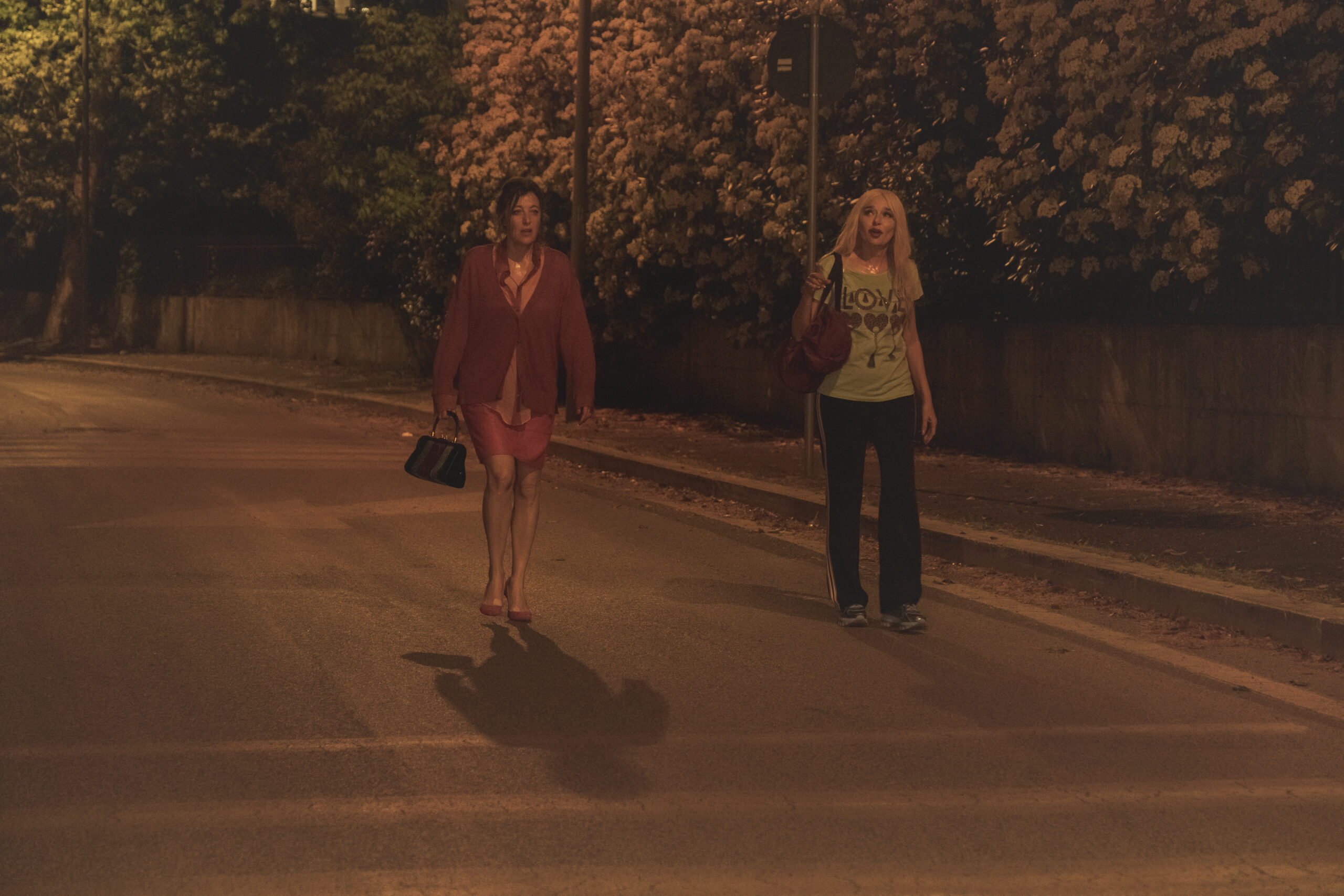
But it must have been daunting having all these storylines. Did you find it daunting? What is so excellent about this film is that not one of the characters gets lost. I’m curious if that was a fear that you had…having so many different characters?
Yeah, I’m so attached to all these characters and I love them so much that sometimes I feel like, “Oh, I wish I could have done a whole movie on Pupa and Gianna.” I could have made even four movies.
Hey I wouldn’t mind it, big fan of them! I am all for you making several sequels actually.
Even the prequel to what happened to them. And it was interesting also working with the actors…it was a lot of work for them because they had to immerse themselves into these incredibly intense characters. And once they were those characters, there was a level of freedom that they didn’t want to leave them. So every one of them was like, “Can I have an extra scene? Can we stay a bit longer with this?”
Did you let them, to a degree?
The production wouldn’t, ha! I would have happily.
Did it start at all with the priest (played by Danny Huston) being the connector of everyone or was that part of the evolution?
It came through, yes, and clearly we wanted someone to be the connector to everyone. Gianna is also a very strong character because she exists very strongly in two storylines. She takes space in the story of [her daughter] Mila [a young girl struggling with an eating disorder]. And Mila’s story, when we wrote it, was actually a much bigger story. Because there was an extra character in that story…it was a whole other movie in itself. Anyway, the priest is the connector of this film, also to some degree because I was brought up in a very religious family.
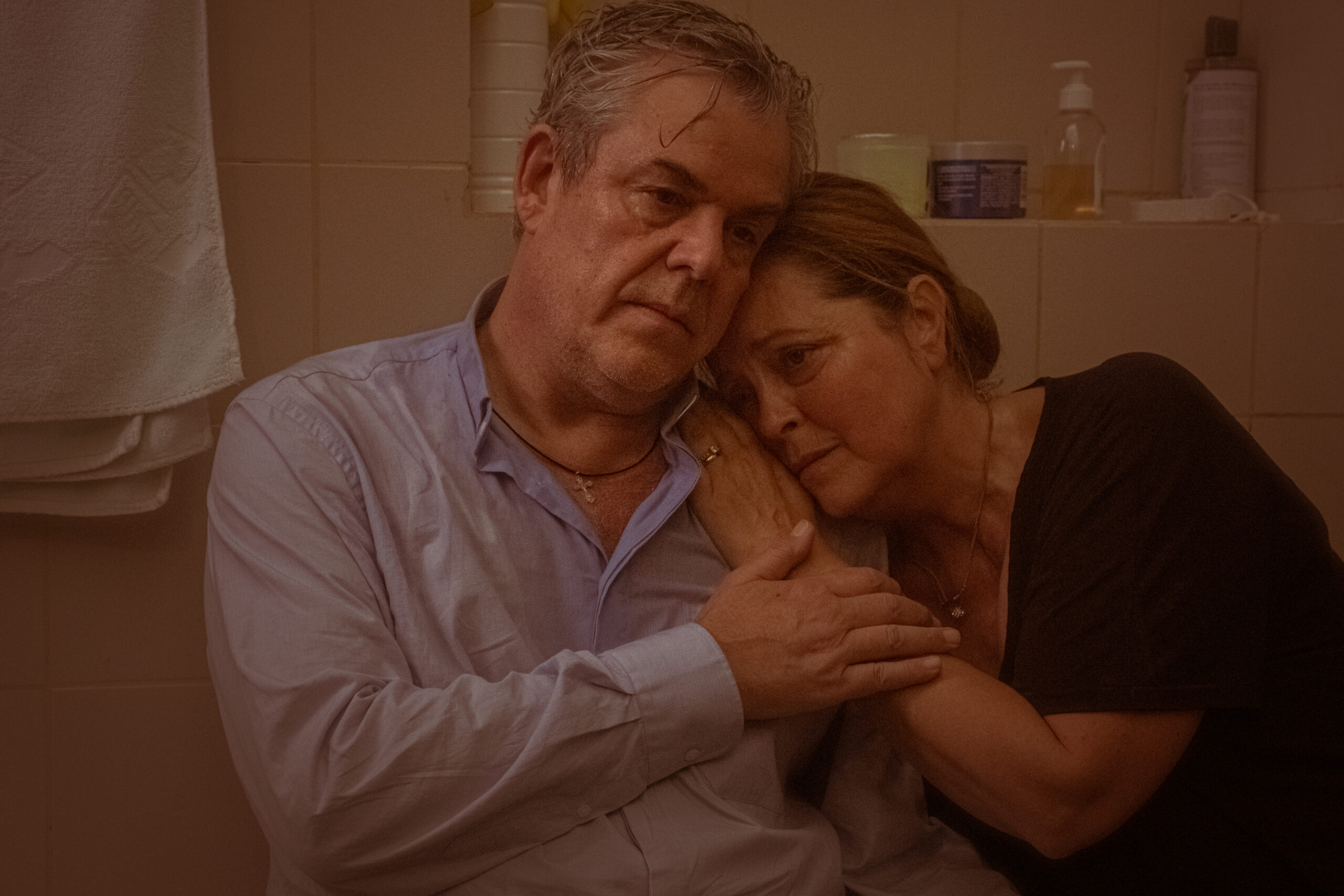
I was definitely curious while watching if you were religious.
No.
I figured from the content.
But I still have that imagination. It stuck with me…The Bible.
It’s all storytelling…the “first” stories.
It’s a story about the end of the world, and the end of the world that is brought onto man because they’re sinners. This is the big story. It’s in any Old Testament story where there’s the destruction of Noah and the Ark or whatever story you go into, this death narrative. And so I thought this was very subconscious, but then addicts are like sinners. They’re the new version. They’re not stigmatized. There’s no moral judgment on them. But it’s the same idea, it’s just changed with our world.
Now the ending. I don’t know if you go on Letterboxd but I’ve been reading and there are so many different interpretations of the ending. In your words, what does the ending mean? SPOILER ALERT
The audience says whatever it is. That’s what it’s for. We are entering the fog. The fog means that I actually do not have an answer. Because I don’t know where we are going. So what’s after that fog? I don’t know. And so is it that apocalypse? Are they in a purgatory? Where are they? And by the end, you have the sun and then it’s a light bulb, and then it just goes, flick! And thank god, it’s a movie. It’s like a bad dream you wake up from.
You made the film in Italy. You premiered at Toronto International Film Festival and then also brought it to California, now New York. Do you find that Italian audiences have a different response overall to the film than North American audiences?
I don’t know. I feel like people respond to it in general because it’s universal.
It is universal. It does take place in Rome though. Is there something in the film that you would say is so uniquely Roman?
There is a sense of humor that is Roman.
That’s exactly what I like about it.
So I don’t know if that translates.
Well another director could have made it a lot darker. It could have felt more tragic but I’m enjoying these characters for their sins in a weird way.
You do. And I love them for them. And they’re wonderful in all their flaws. And life is dramatic and funny. And so that was important that it comes through. And so I’ve seen this film in many different countries, and there are scenes that make people laugh always. The confession scene, for instance, is a scene that works worldwide.
What about the soundtrack? I haven’t heard you talk too much about that. How did you go about it?
Riccardo Sinigaglia…he’s an Italian musician. He did the original soundtrack. And then there’s music in the film, which is something that was also in my first film…music that doesn’t take itself too seriously. So there’s “La Bamba”, and music that everyone knows. Everyone pretends not to like, but they actually know it and like it.
It’s a guilty pleasure.
There’s also “Amore e capoeira” and there’s a song I love called “Cigarette,” which is from a Neapolitan band. So the music was very important in this film. And music is difficult.
Did you pick that music beforehand, or as you were going?
Some songs were there from the beginning. And some came after as we were editing.
Another heated topic of discussion online is about why many of the characters were wearing a lot of clothing during a heatwave.
So I’ve noticed this with myself…when you are in a state of high anxiety, you’re so inside yourself that even if you’re super hot…you’re not even able to take off your clothes.
Totally. There’s a level of self-destruction, that you put yourself in those situations where it may not even be conscious.
Especially a character like Mila who is so body conscious. She’s so uncomfortable with her body that she doesn’t, until the end, finally let go, and be in a tank top and happy.
Yeah. And she’s so beautiful.
Yeah, beautiful!
I heard her and the boy were the hardest ones to cast, right?
Because they’ve never done anything before.
How long did that take you to find them?
I found Mila (Sofia Panizzi) quite fast actually. I’ve seen many, many other girls, but she was very clearly the character for me. The boy was much longer. We had to see many, many, many boys before we found him, because I am not particularly keen on child actors. And so I was looking for a boy in school. Someone who had done nothing before and could bring in all that innocence.
He emotes a lot…he didn’t need to say anything and you would get it.
He’s physically so strong.
I was surprised that he hadn’t acted before.
I said, “Oh, he reminds me of someone.” Then I was looking and then I’m like, “Oh, he’s just exactly the same as Mia Farrow.”
Was he overwhelmed being around this star-studded cast?
Yes, he was, really.
Was he aware of who these people were?
He was aware and he was very naughty secretly. But Alba [Rohrwacher] is amazing with kids. She really sort of carried him through.
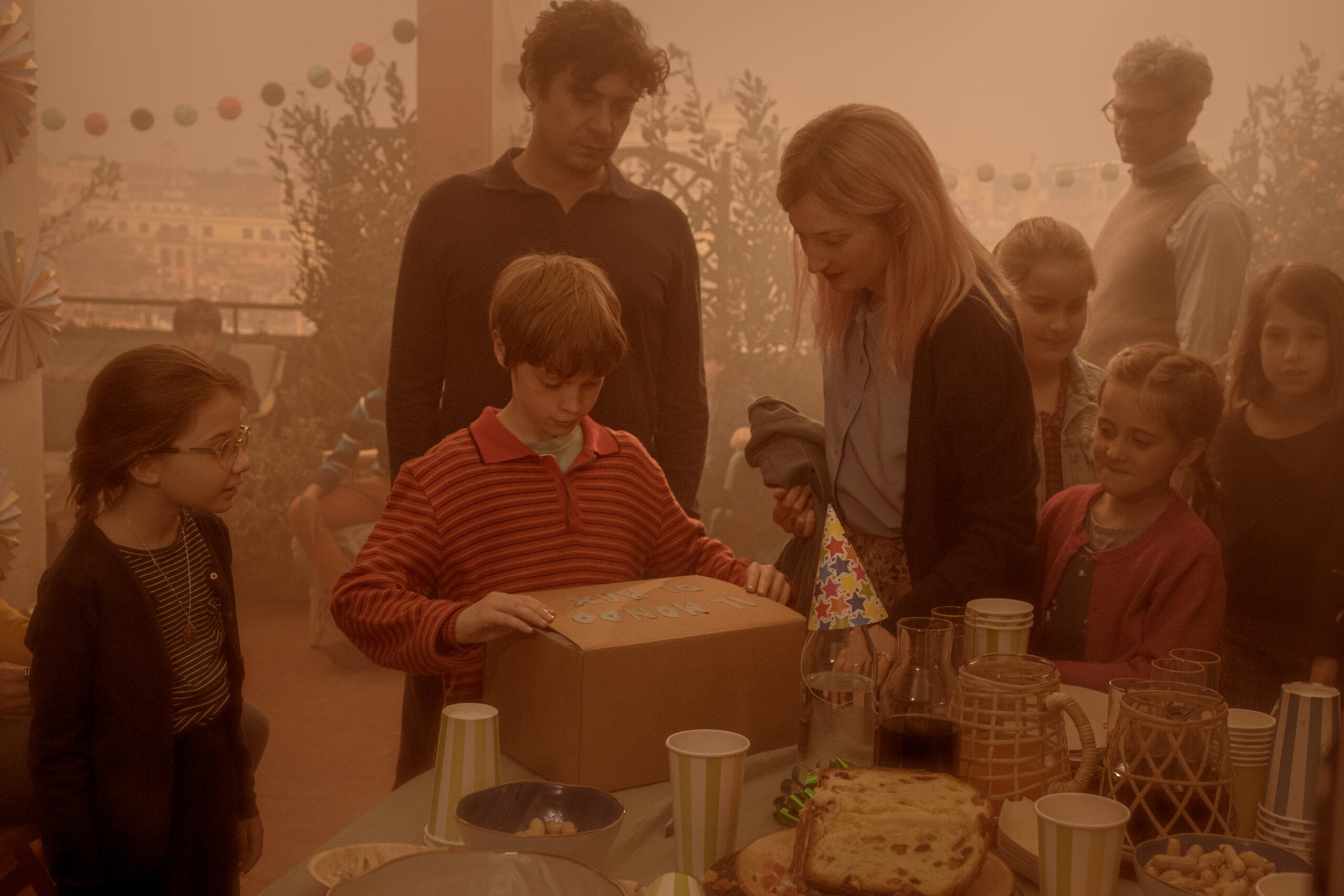
What did you learn about yourself in making the film?
Well, all these characters are a part of me. Bits and pieces. You can imagine how fucked up I am!
Ha, we all are! No one’s safe…
But it was an important film for me to make. And it’s about the darkness and the light that we have. Every film you make is great because it teaches you about your craft, and what you know, and how to handle different situations. This was for me, as a second film, this was very big… I had a big cast and lots of things to think about. I feel like the most important thing in doing this was to enjoy and have fun and be free. And I was lucky my producers gave me that freedom to make this film.
Enjoying the process isn’t always easy, especially as a director, let alone with this subject matter. What do you think is the greatest addiction in society?
Well, we’re addicted to our lifestyle. So we are all addicted to everything, and to consume. We consume, consume, consume. Drink a coffee, and food. Everything on a constant level. We don’t know how to stay with ourselves constantly. Our phones, we’re constantly on our phone getting a little dopamine hit.
How do you think we address it? As a filmmaker, you have to be a sensitive person in tune with the world…I know this is a big question, but on a broad level, where do we start?
Well, we have to accept that this is what we’ve become. You’re not going to not have a phone and you can take advantage of that, too. People are lonely, people are out of communities, people are detached. So it’s very important to me, and I try to do this with my kids a lot, is to be very physical and to make sure they’re part of a community and to make sure they are close to nature and capable of communicating. As a society, we tend to be very controlling, on top of kids. For me, my biggest thing is my kids. How are they going to grow up in this world, and what does it mean, and how do I make sure they know about their emotions and they can handle sadness and they can handle the reality without having to become an addict?
Because if you know that fear and sadness exists, and you can accept those feelings and be in them instead of running away, and just say… “Okay, I’m going to harness this and I’m going to feel my sadness, I’m going to feel my fear. And it’s an emotion, it’s going to pass.” And very often, we don’t know that because we don’t give it that time.
It’s so true. I appreciate your honesty and approach. Also you were saying in the Toronto Q&A about how some people are redeemable and some just are not…and that’s part of accepting the world. That some people will always remain the same.
It’s a choice. And you might choose that you prefer to go down another route and you can’t save everyone.
How much of the film was ad libbed?
Not so much.
Interesting. Was it important to you that they didn’t go off script?
No, I don’t care actually. Because what I do is I create a space and I create a very strong character with the actors. They know very strongly who they are so that they can go and do whatever they want within that circumstance. If they want to say something different…I’m not attached to the word. So they can change the way things are worded or what they’re saying to me…what counts is the intention. Then again, sometimes not, because sometimes when you’re doing something funny, then the wording is much more precise.
It’s like the difference between facts and the truth. You don’t always need the facts but you need the truth, the heart of the matter, the essence.
It’s the core.
What are you doing next?
Well, I’m making a film on the Brontë family. I’m writing it now. It’s very interesting. And to make a film in costume and to tell the story of these amazing writers. It’s about the process of creativity and…they had a dad who was a priest, so there’s religion, and there’s also addiction.
Back at it!
When am I going to get out of this? It seems to be really on my mind… It’s clearly something I’m interested in. But my dream is really to make a romantic comedy.
This interview has been edited and condensed for clarity.
Open Roads: New Italian Cinema is the only screening series to offer North American audiences a diverse and extensive lineup of contemporary Italian films. This year’s edition unveils a broad and diverse selection of Italy’s most exciting films, all North American, U.S., or New York premieres, with appearances and discussions by several of the filmmakers.
Special thank you to Sally Fischer Public Relations for arranging this interview.
CONNECT with NOIAFT:
Become a MEMBER: https://noiaft.org/register
SUBSCRIBE to our YouTube for more exclusive NOIAFT content: https://www.youtube.com/@noiaft6651
Like NOIAFT on FACEBOOK: https://www.facebook.com/noiaft/
Follow NOIAFT on INSTAGRAM: https://www.instagram.com/noiaft/
About NOIAFT: The National Organization of Italian Americans in Film and Television (NOIAFT) aims to connect and empower Italian Americans to achieve their artistic goals.
